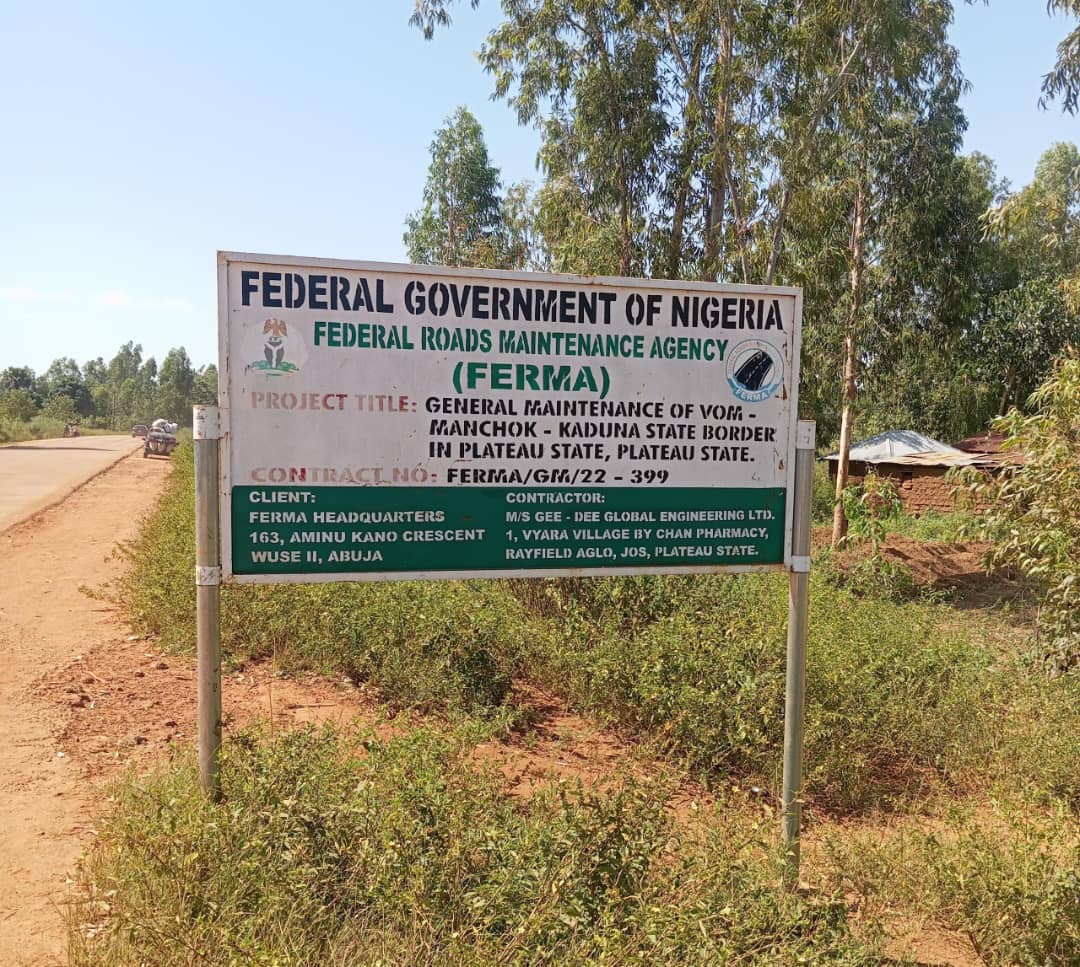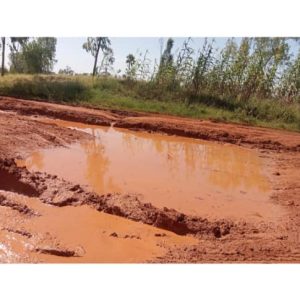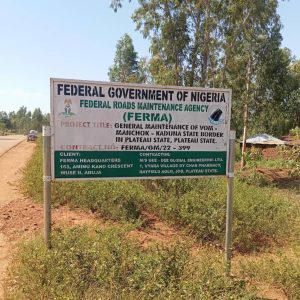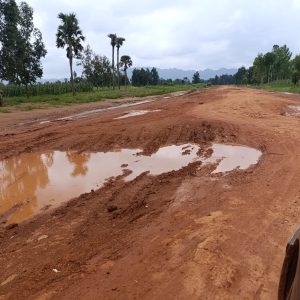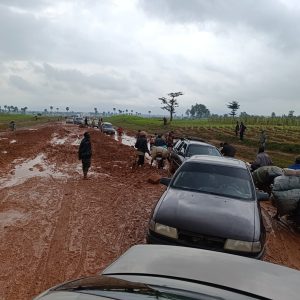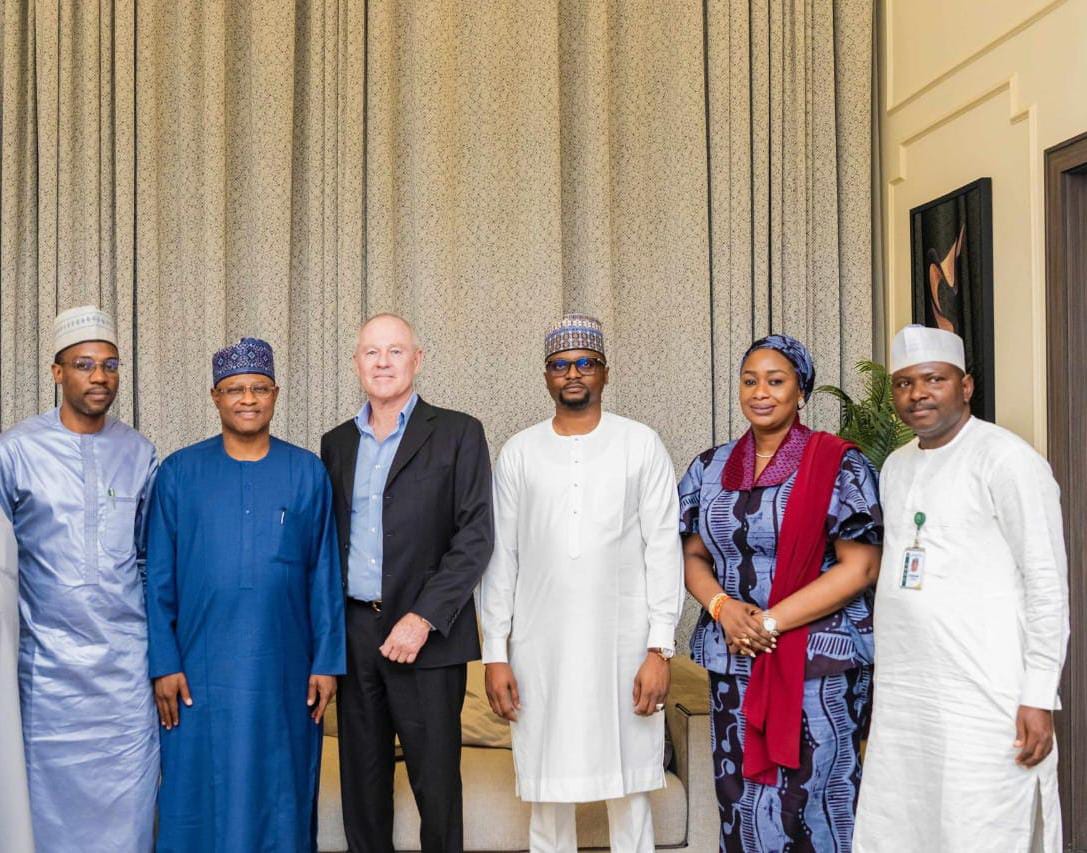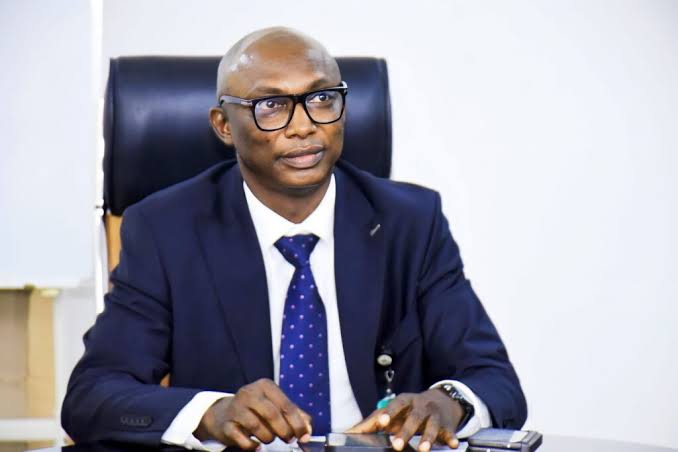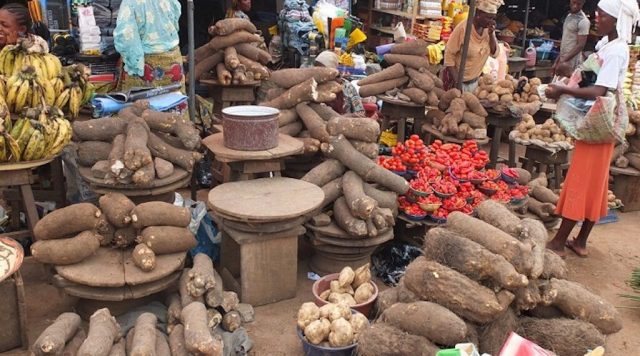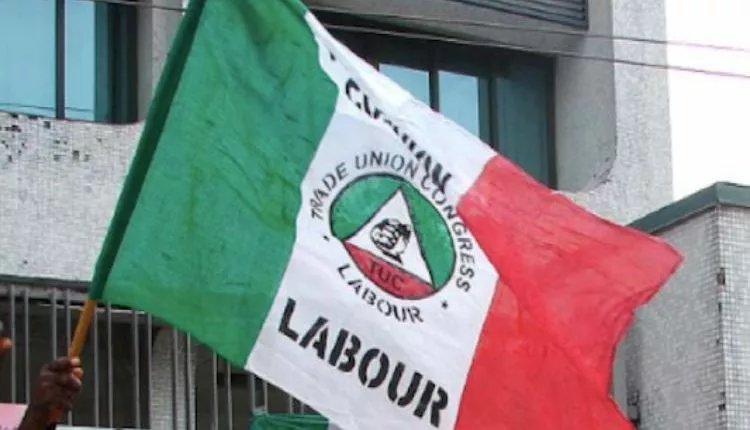Minister Alake’s Fantasy Economics: How Unrealistic Targets Are Destroying Nigeria’s Mining Sector
By Billiyamniu Suraj
Biliyasuraj247@yahoo.com
Nigeria’s Minister of Solid Minerals Development, Dr. Dele Alake, has made bold promises about transforming the country’s mining sector. His stated aspiration for mining to contribute “around 50 percent of GDP” has captured headlines and generated excitement about Nigeria’s mineral potential. However, this target reveals not ambition but a fundamental disconnect from the realities of international mining economics , a disconnect that is actively harming the sector it purports to develop.
To understand how divorced from reality this target is, consider the world’s premier mining nations. Australia, with over a century of mining development, world-class geological data, transparent regulation, sophisticated capital markets, and billions in ready investment capital, sees its mining sector contribute approximately 12-14% to GDP. Canada’s mining sector, similarly mature and well-developed, contributed about 4-6% to national GDP in recent years.
Yet Nigeria, where the mining sector currently contributes less than one percent to GDP and actually declined by 21% in 2024 compared to 2023, is supposedly targeting 50%. This is not merely optimistic, it suggests either a catastrophic misunderstanding of the mining industry or a cynical manipulation of public expectations to justify policies that serve other agendas.
The Seven-Point Agenda: Reforms That Ignore Root Causes
Minister Alake has unveiled a seven-point agenda to reposition the sector: establishing the Nigeria Solid Minerals Company, creating Mines Marshalls to combat illegal mining, acquiring comprehensive geological data, formalizing artisanal and small-scale mining, promoting value addition and local processing, attracting large-scale investment, and strengthening stakeholder engagement.
On paper, these initiatives sound reasonable. In practice, they fail to address or even acknowledge the fundamental problems destroying Nigeria’s mining sector: systematic corruption at the Mining Cadastre Office (MCO), lack of security of title, a punishing fee structure that bankrupts local miners, and the systematic sabotage of a $60 million World Bank-funded cadastre system specifically designed to prevent these failures.
The Ministry’s stated reasons for lack of investment, “insufficient geological data, weak infrastructure, informal operations, illegal mining, and a significant financing gap”, conveniently omit the elephant in the room: institutional corruption and regulatory dysfunction that makes Nigeria’s mining sector toxic to legitimate international investors. This selective diagnosis suggests the Ministry either does not understand how the global mining sector works or is deliberately obscuring the real obstacles to development.
When “Reforms” Become Instruments of Corruption
Perhaps most troubling is evidence that even newly created reform initiatives are being corrupted from inception. The Mines Marshalls, established ostensibly to combat illegal mining, have reportedly been deployed as private security for parties in the Minister’s favor. Rather than enforcing the law impartially, this taxpayer-funded force allegedly serves to protect connected operators while harassing legitimate miners who lack political patronage.
If accurate, this transforms a law enforcement initiative into an instrument of favoritism and intimidation, further entrenching the very corruption it was supposedly created to combat. When even new institutions are corrupted before they can function properly, it reveals the depth of the systemic rot and raises serious questions about whether reform is possible under current leadership.
The Revenue Paradox: Punishing Miners to Generate Numbers
In the first quarter of 2025 alone, the MCO and Mines Inspectorate recorded N6.9 billion and N7 billion in revenue respectively, figures the Minister and MCO Director-General hailed as an “outstanding success.” However, this purported success masks a devastating reality for Nigerian miners and exposes the Ministry’s fundamental misunderstanding of how mining investment works.
The dramatic fee increases that generated these revenue figures have created an unprecedented crisis for local mining operators. The national president of the Miners Association of Nigeria (MAN) highlighted that access to finance remains “the number one challenge facing artisanal and small-scale miners,” describing mining as “a capital-intensive and high-risk sector” where “without targeted funding, our local operators cannot survive, let alone thrive.”
Local miners have made clear that after paying the inflated MCO fees, they lack sufficient capital to actually conduct mining operations, forcing them to seek external financing for what should be operational capital. This is particularly devastating in Nigeria’s context, where the mining sector has not yet developed the mature capital markets seen in countries like Canada and Australia, where exploration is financed through regulated stock exchange listings that distribute risk among investors.
In mature mining economies, companies raise capital through public markets, allowing investors to bear exploration risk in exchange for potential returns. Nigeria’s mining sector has not reached this stage of development. Individual miners must find private capital to explore, make discoveries, and prove such discoveries are the basis for commercial mining operations. The exorbitant fees introduced by the Ministry make this already difficult task nearly impossible.
The Mass Revocation Crisis: Creating Illegality by Design
The result has been an unprecedented wave of title revocations as miners default on inflated fees they simply cannot afford. This mass revocation is not merely an administrative matter, it is forcing Nigerian miners to operate illegally, creating the very conditions for insecurity that the government claims to want to prevent.
When legitimate operators are pushed into illegality by impossible regulatory demands, they join the shadow economy alongside criminal networks. The distinction between forced illegality and criminal enterprise becomes blurred, creating lawless zones where neither regulatory authority nor community accountability operates. The natural resources that belong to all Nigerians are thus exploited and sold by illegal operators who pay no royalties to the federal government, enter into no community development agreements, and provide no fair compensation to landowners.
The Ministry has promoted a “use it or lose it” policy regarding mining titles, presenting it as a reform that will open opportunities for new operators. However, this ignores fundamental mining economics. In mature mining economies like Canada and Australia, the average period from discovery to mine development is eighteen years. This timeline reflects the realities of exploration, feasibility studies, environmental assessments, permitting, financing arrangements, and infrastructure development.
An environment where revocation has become routine due to unpayable fees is not an incentive for development, it is a powerful deterrent to international mining investment. Legitimate mining companies operate on decade-long timelines with hundreds of millions of dollars at stake. They cannot invest such capital in jurisdictions where titles can be arbitrarily revoked or where regulatory demands are economically impossible to meet.
The Stark Reality: A Sector in Decline, Not Growth
The statistics tell a story that contradicts the Ministry’s triumphalist rhetoric. According to the National Bureau of Statistics, Nigeria’s solid minerals, mining, and quarrying sector’s contribution to GDP declined by 21 percent in 2024 compared to 2023, this despite “various reforms and policy changes aimed at revitalising the sector under the current administration.”
In 2021, the mining industry contributed a mere 0.33% of Nigeria’s GDP. The sector generated N193.59 billion in revenue that year, representing less than 1% of national GDP, only 2.62% of total revenue, and a negligible 0.24% of total exports. Over fifteen years, the sector has generated only N814.6 billion in revenue total, indicating it is far from being a major revenue earner.
These figures expose the hollowness of the Ministry’s claims of success. When your sector is shrinking rather than growing, when your contribution to GDP is declining rather than increasing, and when international investors are fleeing rather than arriving, declaring high fee collection as an “outstanding success” reveals either profound delusion or deliberate deception.
International Investor Confidence: From Bad to Worse
International investor confidence in Nigeria’s mining sector is at an all-time low, despite ministerial rhetoric to the contrary. Minister Alake has claimed that UK, US, Saudi Arabia, and UAE officials have expressed interest in Nigeria’s lithium and other critical minerals. However, industry insiders describe this as an “improbable interpretation of the real situation.”
The reality is starkly different: the US, Canada, and Australia, all major international mining economies with mature industries, have effectively put investment in Nigeria’s mining sector on hold. The UK, France, and Germany, which require stable long-term supplies of critical minerals for their green energy transitions, are engaged only in tentative discussions with no concrete progress to date.
Nigeria’s absence from the 2025 Africa Down Under conference in Australia is particularly telling. The conference serves as a major platform for African mining investment promotion and would typically feature significant Nigerian participation given the country’s mineral wealth and need for foreign investment. Speculation has linked this absence to concerns about international arbitration proceedings, including those involving Jupiter Critical Minerals Project over a billion-dollar lithium project.
The lack of security of title, the fundamental requirement for mining investment, undermines any possibility of attracting investment from major international mining companies. When legitimate investors face license cancellations, overlapping claims, or other bureaucratic obstacles, they may seek recourse through international arbitration. Nigeria could face multiple such cases, potentially costing the nation far more than any revenue generated by inflated fees.
The Environmental and Social Costs
Beyond financial dysfunction, the Ministry’s policies have enabled environmental destruction on a massive scale. Chinese mining companies operating in Nigeria have been accused of deploying outdated and environmentally destructive technologies that would be banned in their home country. The absence of rigorous environmental oversight has resulted in ecosystem damage, soil degradation, and health problems for communities near mining operations.
Local residents in mining-affected areas report contaminated water sources, destroyed agricultural lands, and respiratory illnesses linked to mining dust and chemical runoff. The failure to enforce environmental standards or revoke licenses from violating operators suggests either incompetence or deliberate complicity in the destruction.
This environmental crisis is compounded by the illegal mining operations that flourish as legitimate miners are forced underground by impossible fee structures. These illegal operators have even less incentive to follow environmental protocols. The irony is stark: while the Ministry claims to be formalizing artisanal and small-scale mining as part of its seven-point agenda, its policies are actually driving miners underground, creating more environmental damage and less regulatory oversight than before.
Meanwhile, foreign companies with ready access to capital and connections operate with impunity, extracting Nigeria’s resources while leaving behind environmental devastation and providing minimal benefit to local communities who bear the costs of contaminated ecosystems. The growing investment by Chinese players in downstream minerals processing, rather than in exploration and development of new mines, creates ready markets for illegally extracted minerals, establishing a parallel economy that benefits foreign processors while Nigerian communities and the national treasury receive nothing.
The Question of Competence vs. Intent
The pattern of policy failures raises a fundamental question: Is the Ministry incompetent or corrupt? Does it genuinely not understand how international mining investment works, or does it deliberately implement policies that serve interests other than national development?
The 50% GDP target suggests profound ignorance of mining economics. The fee structure that bankrupts local miners while generating impressive revenue numbers suggests a focus on short-term financial extraction rather than long-term sector development. The failure to acknowledge or address institutional corruption at the MCO suggests either wilful blindness or complicity. The corruption of new initiatives like the Mines Marshalls suggests that reform is impossible under current leadership because even new institutions are captured before they can function.
Whether through incompetence or intent, the result is the same: a mining sector in accelerating decline, local miners driven into bankruptcy or illegality, international investors fleeing, environmental destruction proceeding unchecked, and billions in potential revenue lost to corruption and dysfunction.
The Cost Question: At What Price “Transformation”?
Minister Alake is determined to transform the sector, but at what cost? At what cost to local miners forced into bankruptcy or illegality? At what cost to communities suffering environmental destruction? At what cost to national security when regulatory failure breeds insecurity and empowers criminal networks? At what cost to Nigeria’s international reputation when legitimate investors flee and arbitration cases loom?
The question “at what cost?” reverberates through every aspect of the current situation. The Minister’s determination has produced impressive revenue numbers but a sector in decline. It has produced bold targets but collapsing investor confidence. It has produced new institutions that are corrupted before they function and new policies that punish compliance while rewarding corruption.
Conclusion: When Ambition Becomes Delusion
Nigeria possesses significant mineral wealth that could drive economic development, create jobs, and reduce dependence on oil revenues. Realizing this potential requires realistic targets grounded in international mining economics, policies that enable rather than punish local investment, genuine security of title, environmental enforcement, and above all, addressing the institutional corruption that makes Nigeria’s mining sector toxic to legitimate investors.
Minister Alake’s 50% GDP target is not ambitious, it is delusional. His seven-point agenda does not address root causes. His revenue numbers mask the destruction of local mining operations. His reforms are corrupted before implementation. His rhetoric about international interest contradicts the reality of fleeing investors.
The Minister’s stated priorities reveal a profound disconnect from reality. Insufficient geological data, weak infrastructure, and informal operations are genuine challenges, but they pale in comparison to the fundamental problem the Ministry refuses to name: institutional corruption so deep and systematic that it has made Nigeria’s mining sector a cautionary tale rather than an investment destination.
Without a fundamental shift in approach, including realistic targets, affordable fee structures, genuine security of title, environmental enforcement, and above all, confronting rather than obscuring institutional corruption, the mining sector will continue its decline. The 21% drop in GDP contribution in 2024 is not an anomaly; it is the predictable result of policies disconnected from economic reality and a leadership either unable or unwilling to address the fundamental obstacles to sector development.
The minerals will remain in the ground long after current officials have departed. The question is whether Nigeria will have developed the institutional capacity, regulatory credibility, and economic understanding necessary to extract them responsibly and profitably, or whether fantasy economics and corrupted reforms will continue to ensure that Nigeria’s mineral wealth benefits everyone except Nigerians.
This article is based on multiple investigative reports, stakeholder accounts, public documents, and industry data detailing policy failures in Nigeria’s Ministry of Solid Minerals Development. The issues documented represent patterns identified by journalists, industry participants, and civil society observers concerned about governance in Nigeria’s mining sector.



